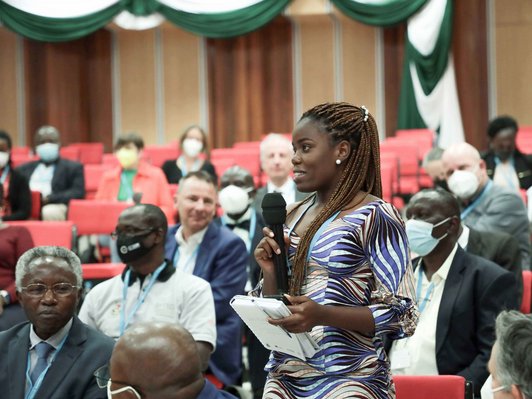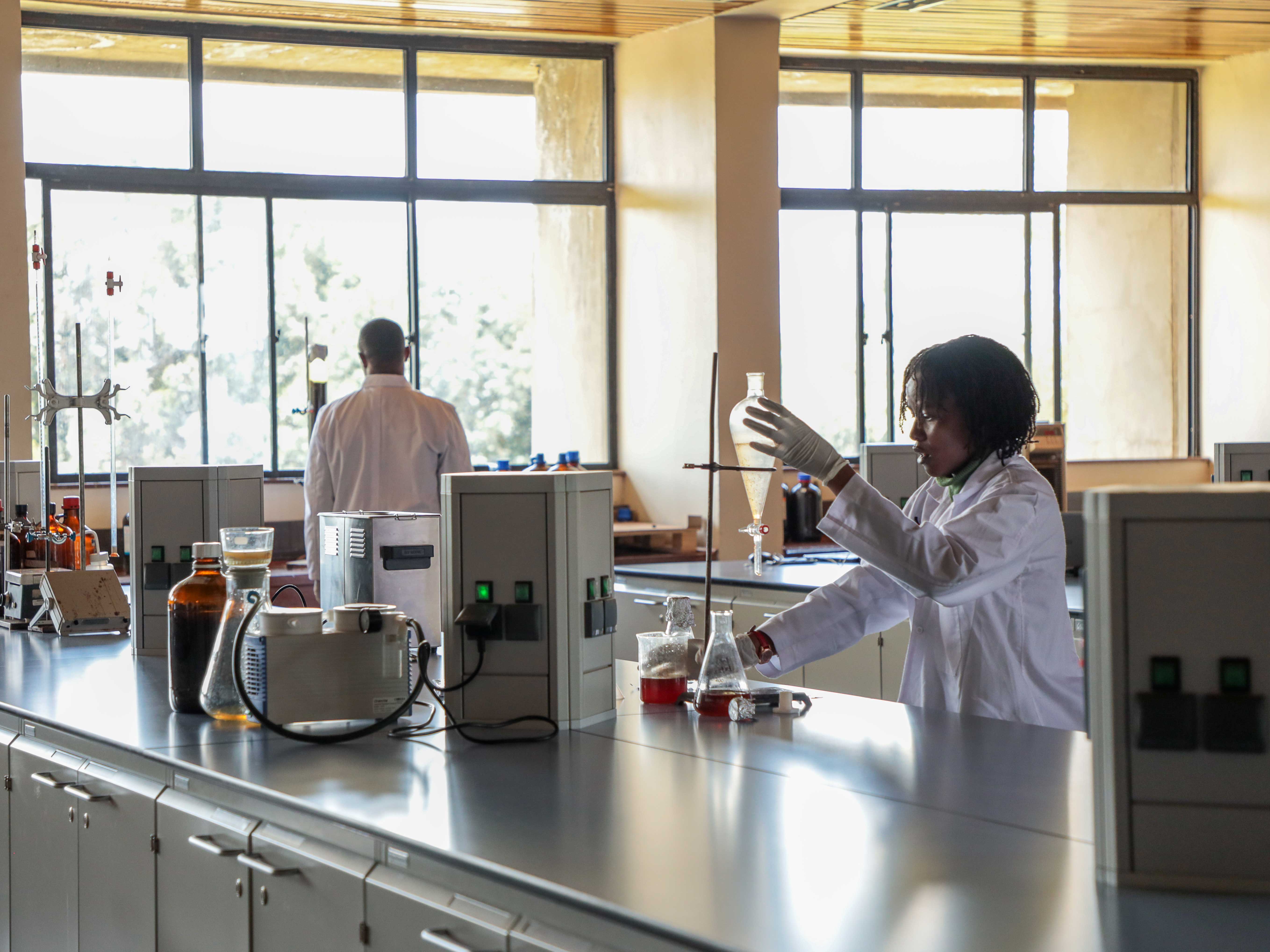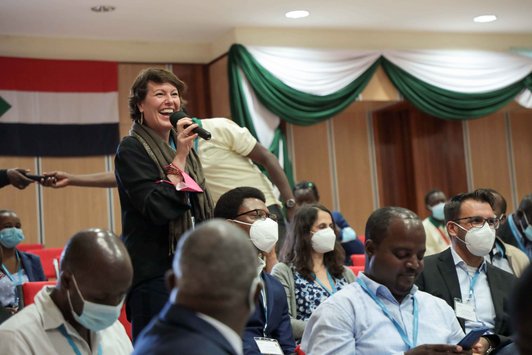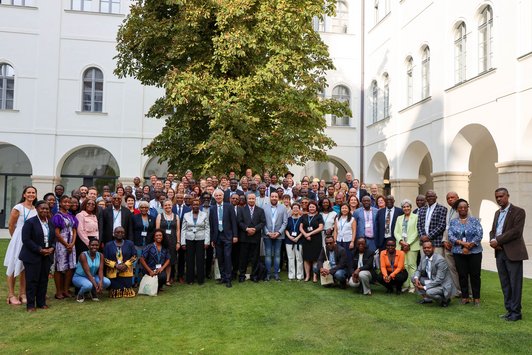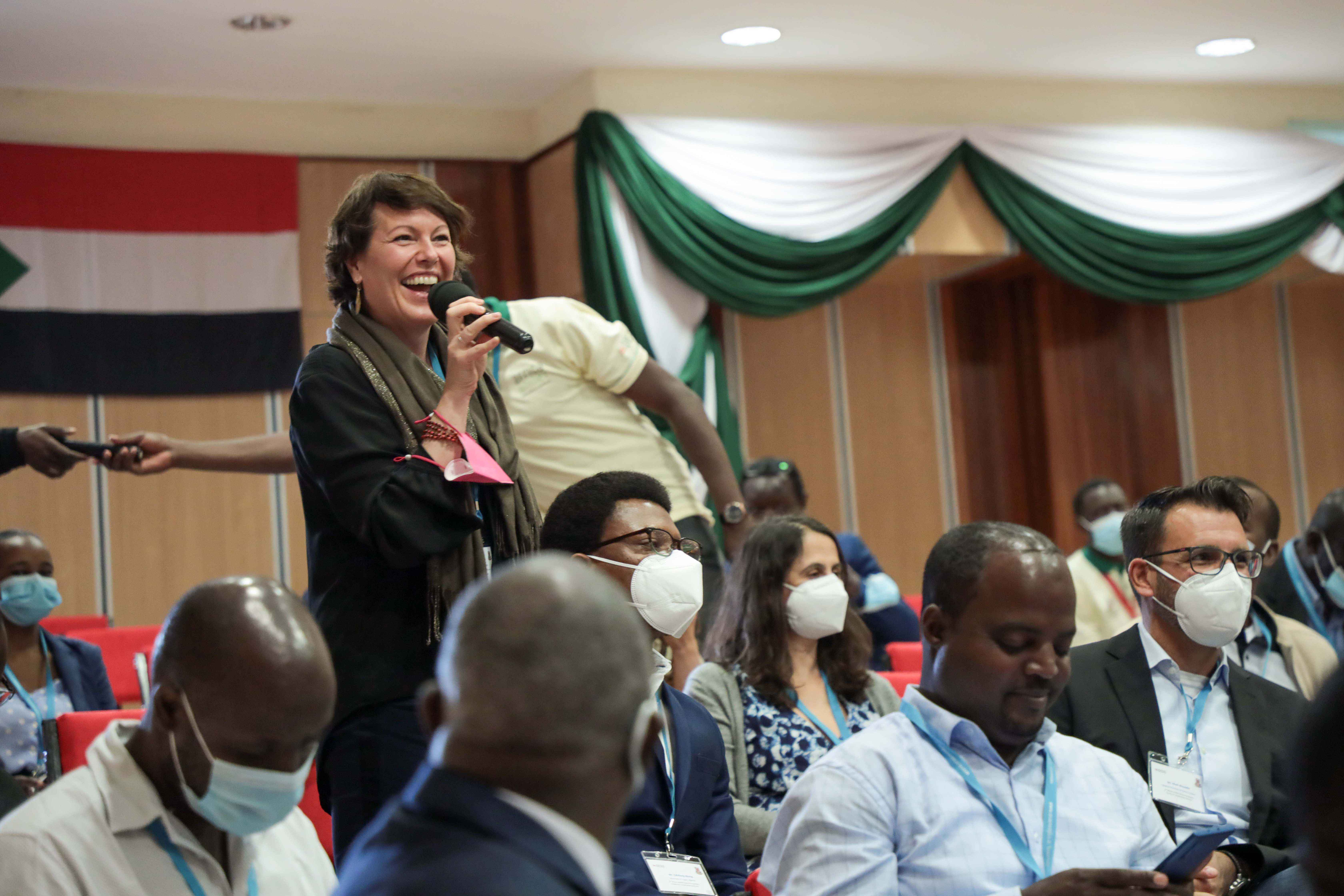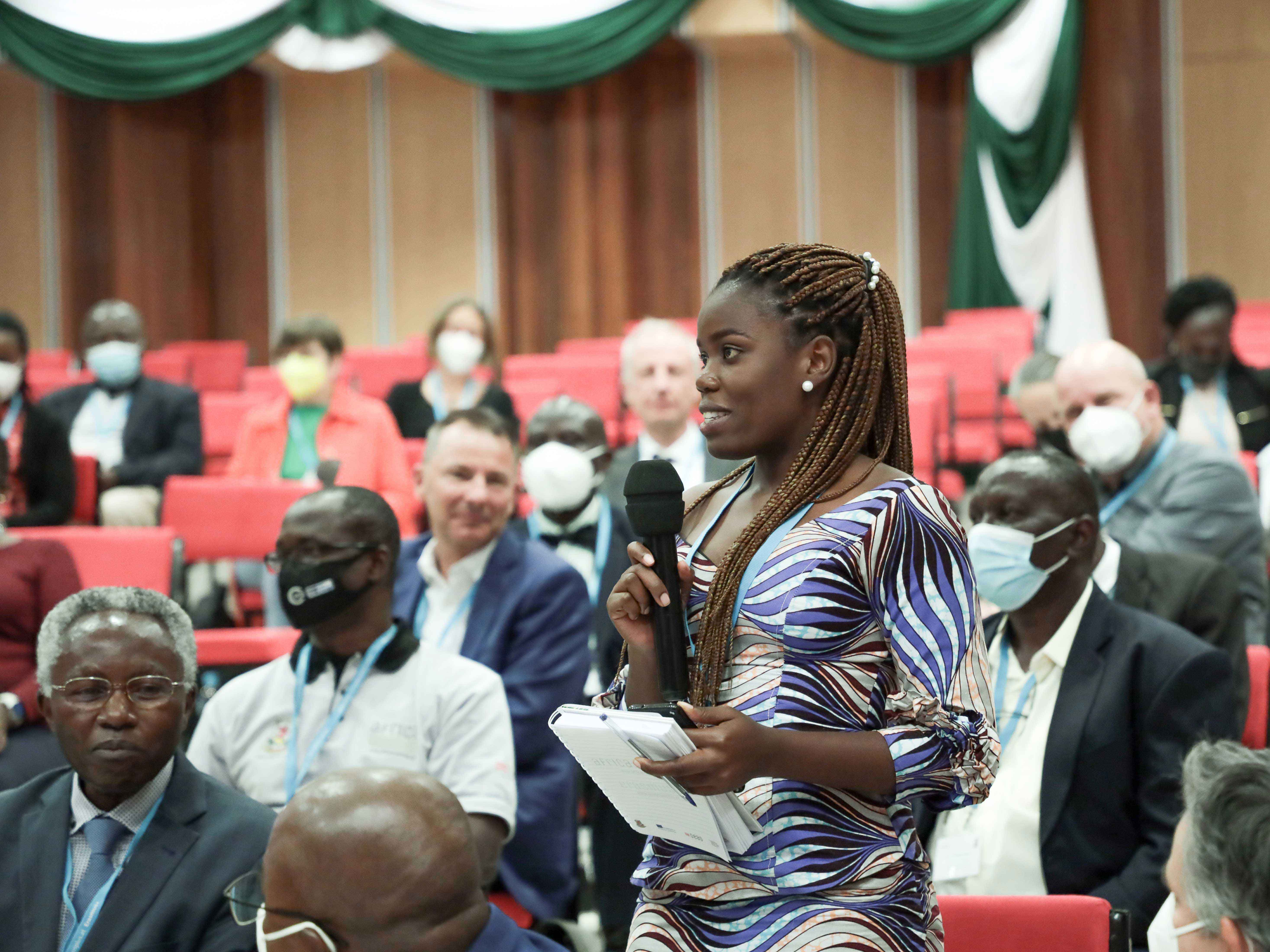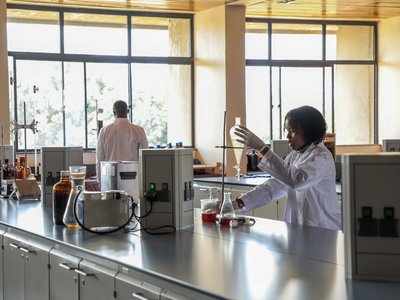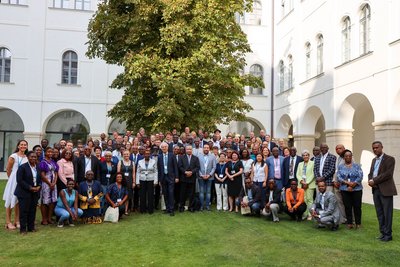Austria carries out research with partners from 17 African countries in Africa-UniNet
22 research projects will be presented by African and Austrian scientists today, 13 September 2023, at the Austrian Academy of Sciences (ÖAW) in Vienna. Approximately 140 representatives from 18 countries and 70 institutions are in Austria between 13 and 15 September for the 3rd general assembly of the university network "Africa-UniNet", organised by the OeAD. Never before have so many representatives of African scientific institutions met with Austrian scientists here in Austria. Africa-UniNet (Austrian-African Research Network) was initiated in 2019 by the Federal Ministry of Education, Science and Research (BMBWF), the OeAD as national education and internationalisation agency, and the University of Natural Resources and Life Sciences, Vienna (BOKU). The network facilitates institutional and personal contacts and cooperation between Austria and African countries. www.africa-uninet.at
Expanding cooperation with African countries and the global south is one of the strategic goals of the Austrian Federal Government. The intensification of research cooperation with specific funding programmes therefore contributes significantly to the implementation of the Federal Government's Africa Strategy. In Ethiopia alone 30 new universities have been opened in the last 15 years and former scholarship holders have taken on important positions in public administration. The Africa-UniNet (Austrian-African Research Network)plays a special role in this. The OeAD is in charge of organising this exciting intercontinental cooperation. Decisions about the content of the network are made by the board chaired by Hubert Hasenauer (BOKU University) and Nzula Kitaka (Egerton University, Kenya) and by the annual general assembly.
The network enables institutional and personal contacts as well as cooperation between Austria and African countries. Universities from 17 African countries are currently working together with Austrian universities to produce scientific results that support the gradual implementation of the Sustainable Development Goals (SDGs). Currently the network consists of 67 member organisations, 26 of them from Austria, 41 from 17 African countries – the number of regions and disciplines is impressive. More than 60 projects are currently running, with around 100 scientific subject areas represented in the respective research. 1.5 million euros have been made available so far by the Federal Ministry of Education, Science and Research for research activities within the framework of three calls for proposals. The fourth call for proposals opened on 1 September 2023 and runs until 30 November 2023.
The programme includes opening statements, high-level key notes, presentations of project results on education, arts and knowledge production, agricultural research and food security, water and environmental sciences, health and community development in panel sessions, and workshops.
"The Austrian Federal Government has specified the expansion of cooperation with Africa as a strategic goal in its government programme. Therefore the Federal Ministry of Education, Science and Research has launched specific funding and networking initiatives. One of these is the Africa-UniNet research network, which also includes a funding scheme for cooperation projects. More than 60 projects of the network have been funded so far. Our goal is to support capacity building in the respective countries and to contribute to solving regional problems through research that are often effects of global developments. In this way we also contribute to achieving the United Nations’ Sustainable Development Goals (SDGs), e.g. by reducing migration and building capacity in the global south," says the federal minister Martin Polaschek.
The OeAD’s managing director Jakob Calice emphasises: "Our goal as Austria’s internationalisation agency is to intensify cooperation between Austrian higher education institutions and universities in Africa. Africa-UniNet is therefore also the answer to the increasing desire for cooperation with African countries. Thus, with Africa-UniNet, an ideal network has been created that offers contact opportunities with African higher education institutions and at the same time also finances first smaller research cooperations. In the medium term we are aiming for constant close cooperation and larger projects within Erasmus+ or Horizon Europe. The focus of the research cooperation for us is on the Sustainable Development Goals (SDGs)."
Hubert Hasenauer from the University of Natural Resources and Life Sciences, Vienna and current president of Africa-UniNet sums it up as follows: "We are pleased about the enormous interest in the network by all sorts of different scientific institutions and by a great number of researchers – covering a broad disciplinary spectrum in both the natural and social sciences. In times of multiple crises transdisciplinary and transnational research is more important than ever. Apart from the importance of scientific results for a sustainable future Africa-UniNet also contributes to a more intense cultural dialogue that transcends borders and brings continents closer together."
The ÖAW’s president Heinz Faßmann says: "Moving from talking to doing was already important to me in 2019. We cannot simply ignore a continent with almost 1.5 thousand million people and think only in national perspectives. By the end of this century 40% of the world's population will live in Africa. We have to cooperate and science and research are the easiest way to do that because there are no serious political reservations. I am therefore very pleased that science cooperation between African and Austrian institutions is developing so well and that the Academy of Sciences is the venue for this year's general assembly. We need to do more in this field than we have done so far and the ÖAW therefore strongly supports the network."
Examples of practice-relevant applied Africa UniNet research:
Digital learning in Africa – as not least the COVID-19 crisis showed – has enormous potential and can revolutionise education on the whole continent. By using technology and internet connectivity digital learning can improve access to education in remote and underserved areas. Personalised and interactive applications and innovative tools can also improve the quality of teaching. An Africa UniNet project between the University of Innsbruck, Debre Markos University in Ethiopia and Redeemer's University in Nigeria aims to develop a dedicated digital learning app for teaching English at secondary schools in Africa. The project links task-based activities with current structured English curricula in Nigeria and Ethiopia to improve the pupils’ exposure to real-world language use. Adebola Adebileje and Teniola Kupolati from Redeemer's University in Nigeria will show the preliminary results in Vienna with the positive impact on pupils’ language skills and the support for teachers in guiding learners through tasks and assessments.
Mycotoxins are a major problem associated with grain harvests in some regions of Africa. These toxic compounds are produced by certain moulds that can contaminate crops, especially maize, sorghum and peanuts. Poor post-harvest handling, storage practices and inadequate drying conditions contribute to the presence of mycotoxins and pose serious health risks and economic losses in the region. Maria Angula from the University of Namibia presents her study on mycotoxin contamination in food crops, particularly with regard to the health of children in rural households. Chromatography and mass spectrometry were used to determine mycotoxin levels in commonly consumed foods. The results indicate that dietary exposure exceeds recommended limits and poses a potential health risk to children. Measures are being developed to address this problem.
Lake Victoria is the largest freshwater lake in Africa and the second largest freshwater lake in the world. It is located in East Africa and shared by Kenya, Uganda and Tanzania. The lake provides ecological services and supports socio-economic activities for millions of people living on its shores. Alex Barakagira from Nkumba University in Uganda and his team investigated the spatial and temporal variations in the water quality at various spots in the lake. The study clearly shows that a sustainable use of the lake requires transboundary planning and governance at different policy levels as well as spatial planning approaches to support policy decisions.
Within the framework of the Africa-UniNet event two receptions will be held at the invitation of the Federal Ministry of Education, Science and Research (BMBWF) and the Federal Ministry for European and International Affairs (BMeiA).
The complete programme booklet of the Africa UniNet general assembly including the research projects is available at the following link: Africa-UniNet 3rd GA | Programme booklet.

